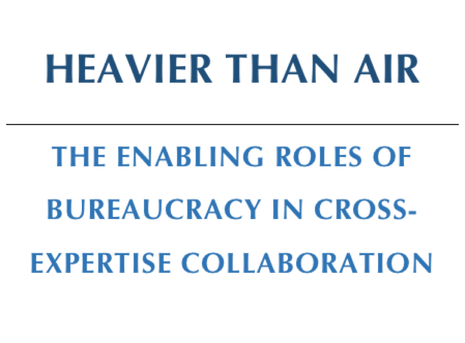|
My thesis explores the enabling roles of bureaucracy in cross-expertise collaboration. Based on 15 months of ethnographic fieldwork in the engineering unit of an aeronautical company, and focusing on a myriad of different specialists involved in the company’s product development, I show that bureaucracy (i.e., understood as the rationalization of work) provides the infrastructure for the collaborative work of various experts. More specifically, through eight embedded cases, I examine how bureaucracy shapes cross-domain meetings, knowledge exchanges, and the work of intermediaries, making these dynamics more unambiguous, calculable, reliable, and precise. By reducing uncertainty, bureaucracy enables specialists to engage in focused and productive exchanges and interactions. I identify three conditions that underpin the positive impact of bureaucracy in this context and present four of its enabling roles in cross-expertise collaboration. Overall, the thesis shows that, unlike what is assumed, bureaucracy supports collaboration and helps to solve some of its key challenges. It also enriches our understanding of the interplay between formal and informal elements in cross-expertise work and refines our ideas about the role of bureaucracy in lateral relations and the conditions underpinning its enabling value.
|

